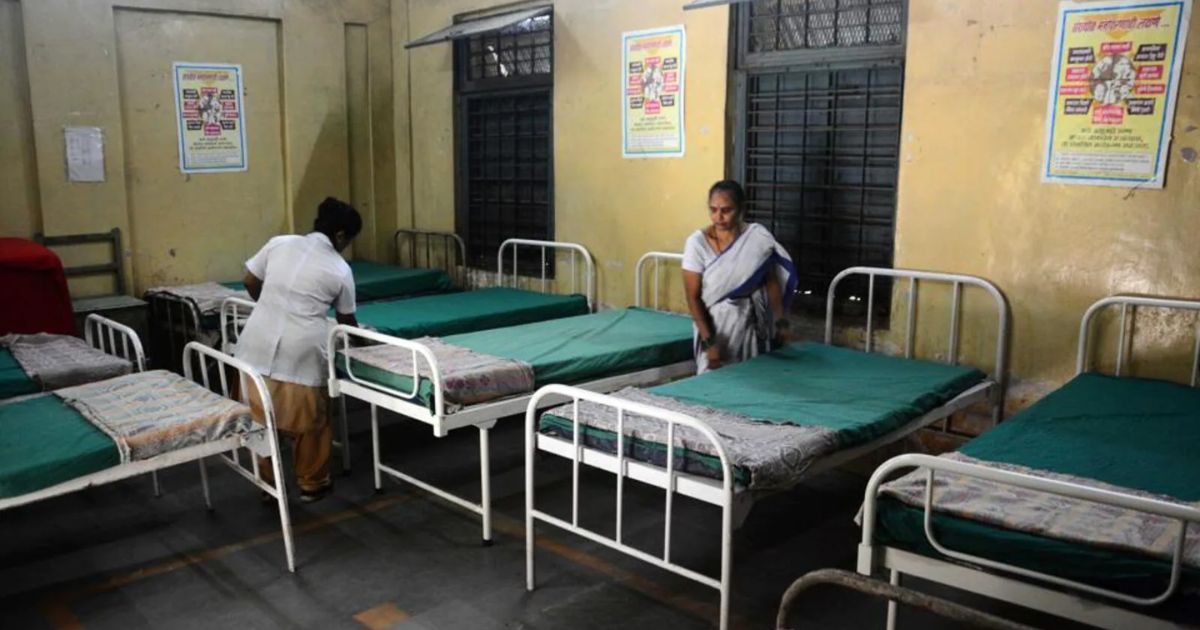The Yerwada Mental Hospital, through a landmark intervention by the Supreme Court, has taken measures to assist totally recovered patients in returning to the mainstream society.
Dr. Sunil Patil, the reputable superintendent who manages the operations of this hospital, highlighted the importance of this initiative.
Dr. Patil made it clear that rehabilitation is at times critical for those who were first received here, and out of the 450 fully rehabilitated patients, up to 176 have since started successful rehabilitation according to the latest update.
Moreover, Dr. Patil explained that rehabilitation involved teaching basic life skills necessary for integrating back these recuperated patients into society in totality.
An important achievement on this course has been witnessed in the lives of 42 persons who are now reintegrated into mainstream society with great success through various Non-Governmental Organizations (NGOs).
In addition, his emphasis on the whole process of rehabilitation points out its profound significance as well as a shift in lives for those who have benefited from it entirely.
They faced challenges along the way such as many individuals not having official documents.
Rehabilitation became difficult due to lack of identification hence it was hard for them to go back home and into society.
The authorities of Yerwada Mental Hospital, working together with NGOs and local law enforcement officers came up with names for these people because they could be found in public places like railway stations, bus stands, temples or mosques.
District collector Rajesh Deshmukh came up with an astonishing solution towards identification problem.
These patients were allowed to apply for Aadhaar cards which would provide them with a formal identity.
Some relatives were traced with ease, but others did not receive them well when they saw them again after treatment since most of them are still at the hospital even though they are completely cured.
However, there have been significant impacts on these people’s lives from various efforts put in place by authorities of Yerwada mental hospital and NGOs.
For instance, Chaitanya organization located in Kondhwa has housed 16 female patients while Kinara old age home admitted 11 women and three men and Manobrahma Foundation took care of 12 males respectively.
These facilities are not just homes but also cater for meals, medication and entertainment gadgets enabling such people to lead quality lives.
One challenge faced throughout this process was that families refused to take back their relatives after recovery since they had given false addresses and contact details when they were admitted.
Some patients were not accepted by their own families hence they remained at the Yerwada Mental Hospital despite fully recovering from their illnesses.
Nevertheless, the endeavor has not been useless. District Collector Rajesh Deshmukh’s decision to give Aadhaar cards to 350 destitute patients proved instrumental.
The process of their successful rehabilitation has been made easier as a result of these official identities which have changed their existence.
Though some patients returned to their homes, few others were shamefully sent back to the hospital by their own relatives indicating how much society still struggles with such people.
This collaborative effort not only reintegrated these individuals into society but also changed their official identities in government records thereby granting them a sense of belonging.
For example, besides Yerwada mental hospital, many other state and national hospitals participated in the rehabilitation exercise involving all stakeholders.
To sum up, the journey to reintegrate fully recovered patients back into their families points to a landscape filled with several difficulties.
The rehabilitation efforts undertaken were successful; notwithstanding, reuniting with their families is not an easy task.
But there is a little glimmer of hope that emerges amidst these challenges illustrated by the collaborative efforts of Yerwada mental hospital’s authorities, Non-Governmental Organizations (NGOs) and community initiatives.
Despite being complexed in regard to their path to reunification with their families, all the actors involved give us a ray of hope.
These are all participations which cut across different sectors representing a united commitment of support and empathy for those who were once locked inside psychiatric institutions.
By doing so, we create the storylines of expectation and change which will make life brighter for people who will seek reintroduction as well as acceptance at their homes and communities.























